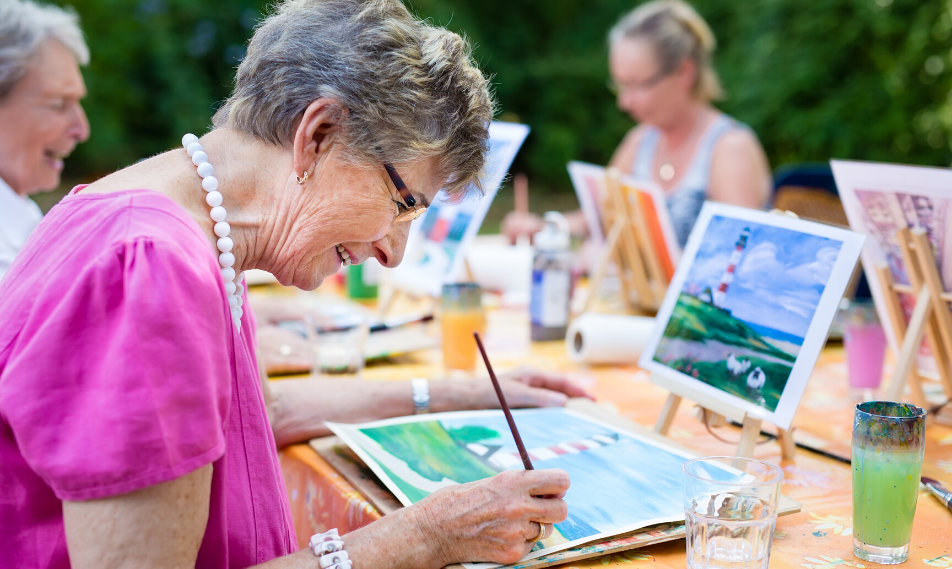Generally speaking, as we get older and less mobile, our ability to travel anywhere and join in community activities can become increasingly difficult. Therefore, due to this and many other contributing factors, our reliance on smaller family and friend groups for companionship grows, especially if they are geographically close. But what if they aren’t geographically close, or aren’t available due to other reasons? If you have an elderly friend or family member whose level of social interaction you are worried about, you are not alone. This concern is growing as Australia’s population is ageing. The senior community is particularly vulnerable to feelings of loneliness and social isolation, so how can we help to prevent it?
Make a List of Goals & Build a Sense of Purpose
Any seniors who are recently in the aged care system or using home care services may feel a drop in confidence and independence, which can impact their motivation to socialise. Taking some time to sit with your loved one, and talking to them about what they would like to achieve in their senior years can help to build a sense of purpose and encourage them to interact with the community. For example, writing a list of what they are passionate about, and what they would like to accomplish over the next few months, may include a form of volunteering, further engagement in a favourite interest or perhaps starting a new hobby. Many goals, hobbies and activities involve interactions with others, as well as keeping senior minds active.
Address Health Issues
Incontinence, hearing problems and vision problems are just some examples of health issues that can impact the confidence of a senior or someone who needs elderly care. In these scenarios, socialising may become difficult as they may be too embarrassed or scared to venture out in the community and interact with others. You can help prevent this by having some tests done and addressing any issues quickly.
Encourage a Positive Attitude
People in the elderly community can feel self-conscious about their appearance and the effects of ageing, to the extent that they may avoid social situations. Developing a positive outlook on life and giving compliments can go a long way in lifting the mood of seniors, or anyone for that matter, and can help to boost their self-esteem. Look on the bright side, as seniors we have less work and more time to enjoy the activities and interests we are passionate about, and to share these experiences with friends and family. With this boost of self-esteem comes the confidence and motivation to socialise with the community.
Make Transport Readily Available
Since many seniors are no longer able to drive, there is a risk they may start to become homebound if transport is not easily made available to them. Getting outdoors, going to events and joining in community activities are great ways to socialise with others and prevent feelings of loneliness. The freedom to get out of the house regularly can also help boost a sense of independence in seniors.
Try Home Care Heroes’ Personalised Companionship Services
Loneliness has unfortunately become alarmingly common and a global health epidemic, worse than smoking or obesity. In Australia alone, one in four people feel lonely for three or more days per week. Home Care Heroes is on a mission to end social isolation and loneliness due to ageing, disability or illness. We want to build inclusive communities, through the power of companionship and human connection. Home Care Heroes offers personalised, non-medical support services at an affordable flat rate of $40 per hour, including weekends and public holidays. Our members are matched with a Hero in their local area who has similar interests to their own, allowing for genuine companionship. Sign up for yourself or for a family member or friend, as see for yourself why we have over fifty 5-star reviews on Google.

